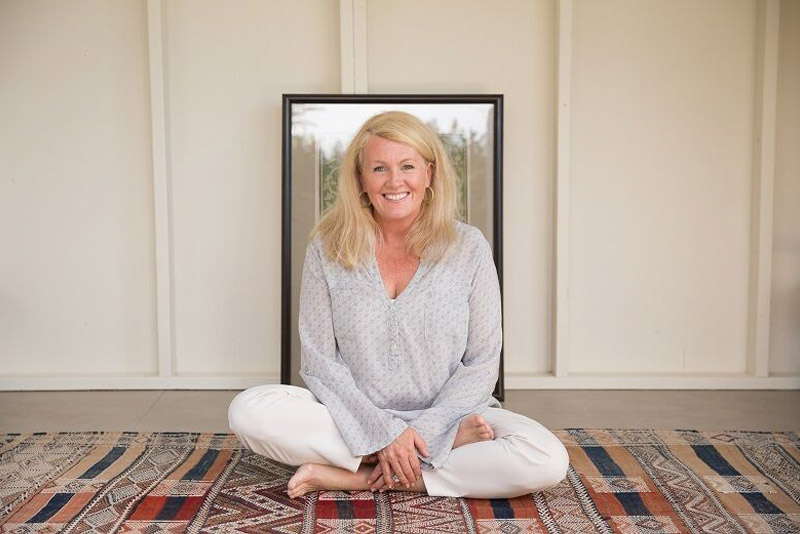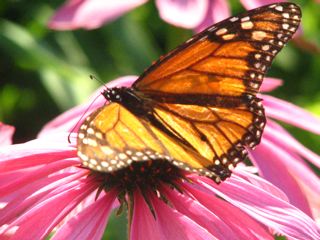The Secret of Contentment

The Secret of Contentment
I first heard songstress k.d. lang sing Constant Craving in the early days of my meditation journey. She sings about the craving that so many of us are born into and are used to living with. The lyrics to the song go like this:
“Even through the darkest phase
Be it thick or thin
Always someone marches brave
Here beneath my skin
And constant craving
Has always been
Maybe a great magnet pulls
All souls towards truth
Or maybe it is life itself
That feeds wisdom
To its youth
Constant craving
Has always been…”
What are you Craving?
She sings that constant craving has always been. We all have our own experience of this. As toddlers we probably screamed to get what we wanted, and now, as adults, though we may no longer scream outwardly, perhaps an intense craving still exists. It whispers throughout the day: “I want…. I need…..”
We all crave something we believe is going to help us to be happier – whether it is a goal we want to reach, an amount of money we need to have, something we think we need to buy, a certain substance we want to consume, or a particular type of relationship we want to be in…. the list goes on and on and it is very personal.
We mistakenly believe we’ll be satisfied when we attain something more – more stuff, more accolades, more comfort, more meaning, more wealth, more power, more love, more approval and attention. So we set lofty goals and commit to working hard to attain them. We imagine that once we get what we want – once the goal is reached – we’ll finally be happy. Our satisfaction and happiness are conditional.
Craving takes many forms, but I believe underneath the craving for most of us, whether we know it or not, is for something spiritual – perhaps it’s a craving to awaken to the wonder and beauty of this life, and perhaps it’s for a deep connection with its creator.
The Brain Chemistry
When you fantasize or plan, emotions and a sense of meaning are generated simultaneously. So are the brain’s neurochemical “feel good” hormones – a cocktail of dopamine, serotonin and endorphins, norepinephrine, and oxytocin. No wonder people love to fantasize!
Planning becomes your default neural network – where your mind drifts off while you are performing rote activities. It’s like you are here, but you are mentally otherwise occupied.
For those of us who tend to fantasize, eventually, we discover the reality of life doesn’t match our fantasy, and even the dopamine hits aren’t quite enough to keep it going. Fantasizing becomes unsustainable as ultimately we feel let down, restless, depressed, and detached from our actual life experience.
Have you ever been around someone who is speaking in somedays? It can be exciting to hear of their great plans and fantasies, but then, over time, it hits you: they are not here with you or present to what is going on now, because their attention is focused on the future. The luster eventually wears off as you realize they’re living in a mirage and you are just part of the scenery. This can erode the intimacy between you and the trust that fulfilling relationships depend on.
The Hungry Ghost
This reminds me of the Buddhist stories of the hungry ghost: a being with a huge belly and a tiny mouth, eternally and desperately trying to satisfy its hunger but is never able to feel full. It’s a haunting metaphor for the unexamined life—one driven by unconscious longing and insatiable desire.
I’ve seen this up close. I’ve experienced my own moments of grasping and striving, I’ve seen it in people I work with, and I’ve seen it in family members. For instance, there’s one woman who has a creative drive that is seemingly never satisfied. There’s always a new creative project, a higher goal, a new accolade, or a new relationship she’s chasing. And yet, her happiness remains elusive. It’s as if no achievement can fill the space within her that longs for peace and connection. This isn’t a judgment—it’s simply an observation. And she’s not alone.
Do you work harder, push yourself to perform, stay as busy as possible to fulfill that goal? Do put off being happy or content while you wait, work, or plan? How content are you with the life you have now?
(Pause for a moment to consider what it is you’ll have when you reach your destination. I imagine it is some version of peace, contentment, and love.)
Fantasizing about the future is a normal part of being human—and it can motivate some of us. But the reality is that the present moment offers what fantasy cannot: actual fulfillment. It’s where peace, wholeness, and satisfaction become real—not projected. While fantasy stimulates desires, being present allows us to taste life directly. When we are focused on the thing that we feel will finally make us happy, we are missing the only place where happiness can ever occur—right here, right now.
Santosha
The word for contentment in Sanskrit is Santosha. You may have heard of it, it’s one of the five niyamas. The Niyamas are just one of the eight limbs of practice in Patanjali’s yoga sutras.
There are five niyamas concerned with one’s personal practices and inner life. They include taking care of your mind and body, being self-disciplined, studying sacred texts, remembering the divine (the ever present benevolent force field), and being content. Some say niyamas refer to how you behave when no one is looking.
Santosha is the antidote to the hungry ghost. It reminds us that nothing outside ourselves needs to change in order for us to touch peace.
Being content has an effect on your well being, the people you are with, the environment you are in, and it’s even been said that it can affect the next generations. Your children can inherit your contentment rather than your discontent with life. What an important and powerful legacy!
Being content is not only a quality you can cultivate, it is also one of the benefits that naturally arises from a daily meditation practice.
Meditation & Mindfulness
As a meditation teacher I train students to welcome everything and resist nothing in meditation. This is essential to help you to settle in, settle down, and relax as you meditate. Your ability to be with “what is” as you rest in meditation, beyond the grasping of the mind, can help to create contentment and more peace.
Another benefit of meditation is being more aware of your internal landscape, including your subtle habits of thinking. When you are aware of the content of your thoughts – how and what you think about – only then can you can redirect your attention – if need be – to something more nourishing. It’s a mind game.
When you notice you are discontent, complaining, and feeling unsatisfied, you can put the craving on pause and redirect your attention to what is here, what is good, and what you are grateful for. Though you won’t release the dopamine you might be addicted to – along with its highs and lows – instead, your brain will release neurochemicals that enhance your mood, reduce stress and anxiety, give you a sense of safety, and enhance your connection with those around you. This cocktail of endocannabinoids, GABA, serotonin, and oxytocin are associated with personal satisfaction and contentment and can give you the feeling of “ahhh” as a sense of peace washes over you.
Fall in Love with “What Is.”
Have you heard of the saying “The journey is the destination”? Perhaps it’s a good time to evaluate how you “journey” while working your way to your destination.
In reality, there are two ways to do anything, one way is being stressed, dissatisfied, and checked out; while the other way is to be mindful, content, and engaged.
For instance, if I wake up and notice my mental complaints start in such as I need more sleep, I don’t have enough time, I have too much to do, I make it a point to shift my focus to what I am grateful for. I engage what is called the direct experience neural network – or the mindfulness network. I turn my attention to what is here and am thankful for – engaging with the moment itself and my sensory experiences – seeing the rays of the morning sun, feeling the sensation of stretching my body, and hearing the birdsongs from my window.
If I am running late for an appointment, I notice the feeling of rushing, being frustrated, or my critical self-talk, and I make a shift. I aim to be mindful and present without the overlay of complaints. Instead of craving something different than what is, I slow down, relax, and notice the beauty along the way: I take deep breaths while stopped at the stoplights and aim to stop struggling against the moment. Whatever way I travel to the meeting, I know I’ll get there so I might as well love what is happening along the way.
With meditation and mindful living, you learn to welcome everything and resist nothing, and can be present to what actually is happening right here, right now. Welcoming everything and resisting nothing. This is the practice. And in this practice of being here now, you can touch contentment. Not the fantasy of being content someday, but actually being satiated by this present moment.
Gratitude: The Gate to Enoughness
Loving what is doesn’t mean I don’t wish things were different, but instead, I accept what is, and my response to it. I do wish for a future with less suffering and more joy, but when I am present for each moment of my life, I notice how full it already is. I realize I don’t need to suffer. I don’t need to wait for things to go a certain way. I am not a victim. This can lead to a sense of great fullness.
Gratitude is one of the most powerful doorways to contentment. It shifts your attention from what is missing to what is here. From what’s wrong to what is good. From what you want… to what you already have.
Try it right now. Identify five things you’re grateful for—without changing a single thing in your life. Need help getting started? Here are five things to consider:
The breath in your lungs.
The beauty of the space you are in.
The ability to read these words.
The food in your belly.
Your curiosity.
Gratitude reveals the perfection that’s already present in the moment. It doesn’t require everything to be perfect, already. Gratitude cultivates contentment, and helps you to fall in love with what is.
Accepting This Moment
As Deepak Chopra wrote in his book, The Seven Spiritual Laws of Success, “To struggle against this moment is to struggle against the whole universe” he emphasized that trying to control or change the current moment is ultimately a fruitless effort against the vast, interconnected web of existence.
“When you resist one moment, you’re actually resisting the intelligence of nature and the cause and effect that brought it about.”
You can stop the struggle. When you let go of the desire to control the present, you can find a greater sense of peace and clarity.
This is it. This is your life. Even the dull parts. Even the messy parts. Even the heartache and the sadness. They’re all aspects of your wholeness and your common humanity. They are brought to you by the universal intelligence and just may be the doorway to your joy and awakening.
Contentment is Found Right Here, Right Now.
“Be content with what you have; rejoice in the way things are. When you realize there is nothing lacking, the whole world belongs to you.”
These are wise words from Lao Tzu from the Tao Te Ching.
Maybe what you’re craving… is already here. You don’t have to wait to feel content. You don’t have to finish the project, reach the goal, or earn the validation. You can be content now.
“Maybe a great magnet pulls
All souls towards truth…” —k.d. lang
What if craving is actually the soul’s longing for itself? For the divine? For remembering who you are?“
With love,
Sarah
P.S. Listen to conversations and meditations from yoga teacher Zac Occhiline and me about cultivating santosha and the other yamas and niyamas.
P.P.S. Here’s a poem by Bob Perks, author of I Wish you Enough.
“I wish you enough sun to keep your attitude bright.
I wish you enough rain to appreciate the sun more.
I wish you enough happiness to keep your spirit alive.
I wish you enough pain so that the smallest joys in life appear much bigger.
I wish you enough gain to satisfy your wanting.
I wish you enough loss to appreciate all that you possess.
I wish you enough hellos
to get you through the final goodbye.”
Sarah McLean
Sarah McLean is an acclaimed teacher and thought leader who is determined to create more peace on this planet by helping people wake up to the wonder and beauty of their lives and the world around them through the practices of meditation and mindfulness. She inspires audiences everywhere blending the spirit of Zen wisdom with Vedic knowledge and self-inquiry. She helps demystify meditation and makes it accessible to anyone. It was over 30 years ago when she began her daily meditation practice, and moved in to a Transcendental Meditation community. There, she received advanced training in meditation and studied Ayurveda. Since 1993, when she became the education director for Deepak Chopra’s Center for Mind Body Health, she's been teaching contemplative practices and mind/body health. In 1997, she went to India to live in a traditional ashram in India, When she returned to the States, spent two years as a resident trainee in a Zen Buddhist monastery. She fell in love with Self-inquiry and served as the director of Byron Katie's School for the Work. In 2012, she founded the McLean Meditation Institute, home of the Meditation Teacher Academy which certifies meditation and mindfulness teachers through its 300-hour teacher training program. Her bestseller, Soul-Centered: Transform Your Life in 8 Weeks with Meditation, and her most recent book, The Power of Attention: Awakening to Love have received rave reviews. She now lives in Santa Barbara, California where she trains meditation teachers and offers online classes and lives a life she loves.






